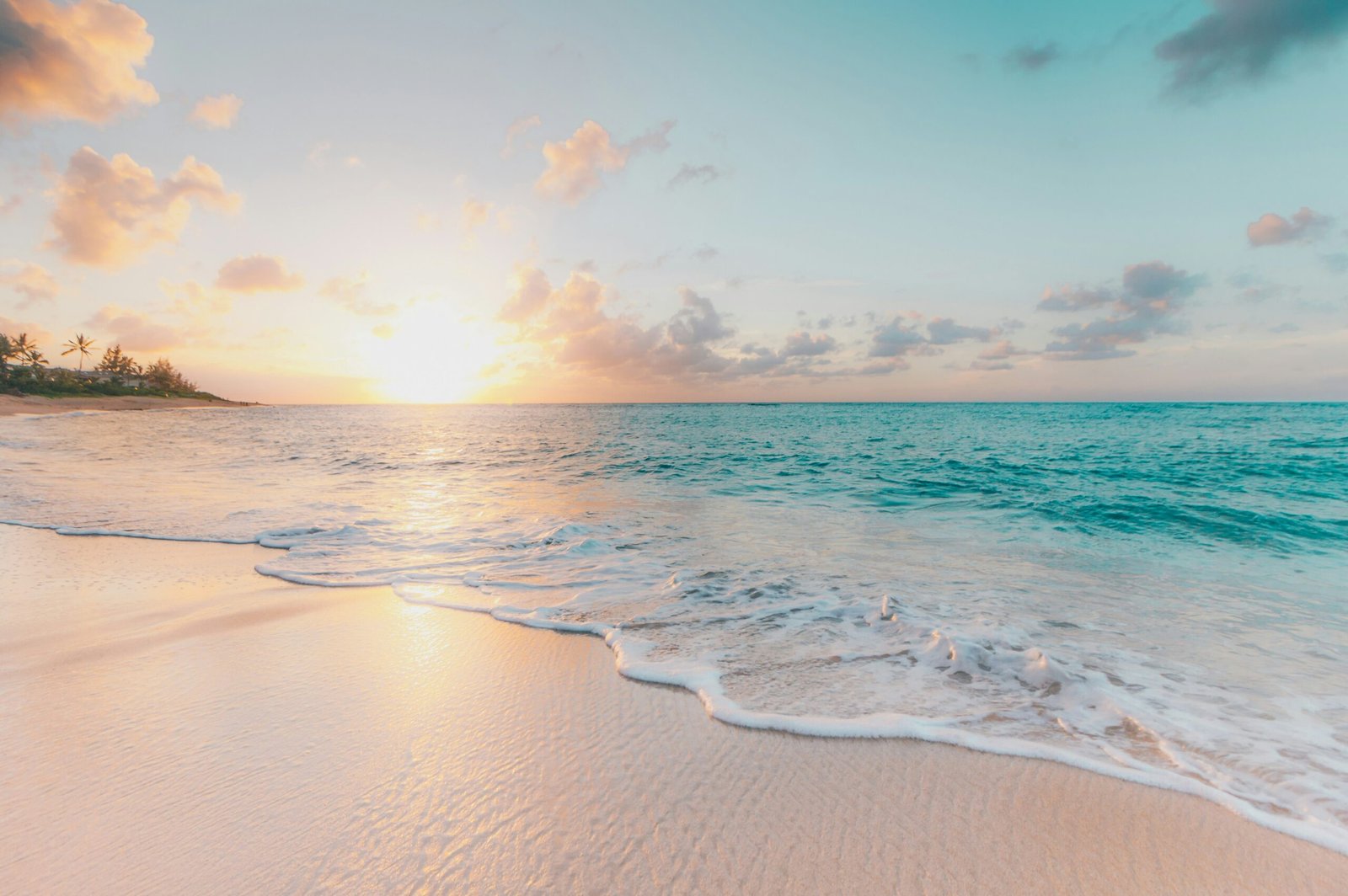Introduction to Sea Diving
Sea diving, an exhilarating form of exploration, has gained significant prominence as an adventure sport over the past few decades. Originating from ancient civilizations that utilized primitive diving techniques for gathering food and exploring underwater environments, the activity has evolved considerably. Early diving practices can be traced back to the Greek and Roman eras, where individuals used rudimentary equipment such as weights and breathing tubes to facilitate submerged experiences.
As technology advanced, the desire to explore the mysterious depths of oceans and seas led to the development of sophisticated diving gear, including scuba suits and compressed air tanks. With the establishment of diving organizations and standardized training programs, sea diving transformed from a mere survival tactic into a recreational and professional activity embraced by countless adventure enthusiasts worldwide.
Today, sea diving is not only regarded as a thrilling sport but also a means of appreciating the breathtaking beauty and diversity of marine ecosystems. Divers embark on underwater journeys, gaining firsthand insight into the intricacies of aquatic life, vibrant coral reefs, and historical shipwrecks. This connection with nature fosters a sense of responsibility towards ocean conservation, encouraging many divers to become advocates for marine environmental protection.
The appeal of sea diving lies in the unique experiences it offers. As divers descend into the depths of the ocean, they are often enveloped in an ethereal silence, enhancing the stark contrast with the bustling world above the surface. This immersion provides not only a break from daily routines but also an opportunity for personal growth and camaraderie among fellow divers through shared adventures.
In summary, sea diving serves as a remarkable gateway to explore the wonders of underwater life, fueling both curiosity and respect for the ocean. As this sport continues to gain traction, it invites individuals from all walks of life to embrace adventure and discover the extraordinary beauty beneath the waves.

Introduction to Discover Sea Diving
Embarking on the journey of sea diving opens up a world filled with unparalleled excitement and exploration. With every dive, adventurers are offered the unique opportunity to immerse themselves in the mesmerizing underwater landscapes that nature has to offer. Are you ready to dive into this adventure?
The Thrills of Sea Diving
Sea diving is not just an activity; it is an experience that showcases the beauty of marine life in its most vivid forms. From vibrant coral reefs bustling with colorful fish to the serene shadows of coastal caves, each dive reveals new wonders. Enthusiasts often highlight the thrill of encountering majestic sea turtles, darting rays, or even the occasional dolphin. The combination of adrenaline and tranquility allows divers to connect deeply with the ocean’s enigmatic charm.
Preparing for Your Diving Adventure
To ensure a safe and enjoyable experience, proper preparation is essential before embarking on your diving adventure. It is crucial to undergo appropriate training and obtain necessary certifications from recognized institutions. Furthermore, selecting the right diving gear tailored to your needs will enhance comfort and buoyancy underwater. Remember, your adventure begins long before you find yourself beneath the waves. Are you ready to take the plunge and discover what lies beneath? Sea diving awaits!
Benefits of Underwater Exploration
Underwater exploration through sea diving offers a myriad of benefits that go beyond mere recreation. Firstly, engaging in this adventurous activity significantly enhances physical fitness. The act of diving requires swimmers to navigate through water currents, which helps to build strength and endurance. The various movements involved in diving, such as kicking and pulling, also improve cardiovascular health. Furthermore, the weightlessness experienced underwater can aid in the rehabilitation of certain injuries, making it a low-impact alternative for fitness enthusiasts.
Beyond physical advantages, sea diving has profound mental health benefits. The serene underwater environment provides a unique sense of tranquility that can alleviate stress and anxiety. Immersing oneself in the depths of the ocean can induce a meditative state, allowing divers to momentarily escape the pressures of daily life. Research indicates that engaging in regular diving activities can improve mood and boost self-esteem, fostering a more positive outlook on life. The calming effect of being submerged under water enables individuals to clear their minds, leading to improved focus and clarity.
Moreover, divers have the incredible opportunity to encounter diverse marine life, fostering a deeper appreciation for ocean ecosystems. This firsthand experience can inspire individuals to become more environmentally conscious, advocating for the protection of marine habitats. Diving also promotes a sense of community among enthusiasts. Joining diving groups or clubs encourages collaboration and camaraderie, forging connections with others who share a passion for underwater exploration. Such relationships can enrich one’s diving experiences and promote shared learning about the ocean and its conservation.
Types of Sea Diving
Sea diving encompasses a variety of disciplines, each catering to different interests, skill levels, and environments. The principal types include recreational diving, technical diving, freediving, and cave diving. Understanding these distinctions is key to selecting the diving experience that perfectly aligns with your adventurous spirit.
Recreational diving is the most common form, appealing to both novices and seasoned divers alike. It usually occurs in warm, clear waters, such as those found in tropical locations, and focuses on exploring marine environments. Required skills include basic scuba certifications and an understanding of safety protocols. The essential diving equipment for this type includes a wetsuit, tank, regulator, buoyancy control device (BCD), and fins.
In contrast, technical diving delves into deeper and more complex underwater terrains, often necessitating specialized training and equipment. Divers may explore shipwrecks or underwater caves, requiring advanced skills such as mixed gas diving and extended range diving. This type often demands additional gear, such as multiple tanks, rebreathers, and advanced navigation tools to ensure safety and mission success.
Freediving, or breath-hold diving, is a more minimalist approach that emphasizes a diver’s ability to hold their breath while descending into the sea. This type of diving requires a mastery of techniques such as equalization and relaxation. Freedivers typically require less equipment compared to scuba divers, as all that is needed is a wetsuit, fins, and a diving mask, allowing for a more liberated experience in the ocean.
Cave diving presents its own unique challenges, as it involves navigating underwater caves that can be close, dark, and filled with specific hazards. This type requires rigorous training, as divers must be knowledgeable about cave diving techniques and safety procedures. Essential equipment often includes backup lights and specialized tanks to navigate these confined spaces effectively.
Essential Gear for Diving
When preparing for an underwater adventure, selecting the appropriate gear is crucial to ensure both safety and comfort while diving. Among the essential pieces of equipment, the wetsuit stands out as a primary item. Wetsuits are designed to provide thermal protection, helping to maintain body temperature in cooler waters. The thickness of the wetsuit can vary based on water conditions and personal preference, with options ranging from 3mm to 7mm for colder environments.
Another vital component is the buoyancy control device (BCD). This piece of equipment allows divers to maintain neutral buoyancy underwater. A well-fitting BCD provides stability and support by allowing divers to easily control their ascent and descent. It is essential to choose a BCD that accommodates the diver’s body type and expected dive conditions, ensuring optimal comfort and functionality.
Regulators also play a significant role in undersea diving. They are responsible for delivering breathable air from the tank to the diver. A reliable regulator should be easy to use and maintain, as it directly affects the diving experience. When selecting a regulator, divers should consider factors such as performance at varying depths and special features like adjustable settings.
Tanks are crucial for storing breathing gas, and they come in different sizes, typically noted in liters. The choice of tank depends on the length of the dive and expected air consumption. It is recommended that divers familiarize themselves with tank specifications and ensure proper handling and storage.
Lastly, fins are essential for efficient movement through the water. They enhance propulsion and maneuverability while reducing fatigue. Divers should select fins based on the type of diving—whether it is recreational or technical—and personal comfort. By carefully considering each piece of equipment and its suitability for specific dive conditions, divers can ensure a more enjoyable experience underwater.
Safety Precautions and Training
Engaging in sea diving is an exhilarating experience that offers the chance to explore the underwater world. However, it is vital to prioritize safety precautions to ensure a secure and enjoyable dive. Before embarking on any diving adventure, it’s essential to undergo formal training provided by recognized certification agencies. These agencies, such as PADI and SSI, equip divers with the knowledge and skills necessary to handle various underwater scenarios safely. A comprehensive training program will cover critical aspects such as buoyancy control, underwater navigation, emergency procedures, and equipment handling.
Effective dive planning is a fundamental safety precaution that divers must never overlook. Proper dive planning involves assessing conditions that may affect the dive, including weather patterns, water temperature, visibility, and potential hazards such as currents or marine life. Divers should also be aware of their physical fitness and experience levels, ensuring that the selected dive site aligns with their capabilities. Discussing plans with a dive buddy is crucial; they should be familiar with the dive objectives and any contingency procedures that may be necessary.
Diving with a buddy is not just advisable; it is a vital safety measure. A buddy system enhances safety as divers can assist each other during emergencies, monitor each other’s air supply, and provide support to manage any unexpected challenges that may arise during the dive. Establishing communication signals before descending is also essential to ensure that both divers can relay important information clearly underwater.
In summary, safety precautions in sea diving are critical to a successful experience. Emphasizing formal training through reputable certification agencies, meticulous dive planning, and adhering to the buddy system will help mitigate risks and promote a secure diving environment. By prioritizing these safety measures, divers can focus on enjoying the breathtaking underwater adventures that await them.
Choosing the Right Dive Destination
Choosing the right dive destination is a crucial step in your adventure underwater. Various factors influence this decision, including your skill level, personal interests, and budget. As a diver, it is essential to evaluate these elements to maximize your diving experience. For novice divers, it may be wise to select locations that offer calm waters and abundant training facilities, such as the Caribbean islands like Bonaire or Cozumel. These locations are known for their gentle currents and vibrant marine life, providing an ideal environment to learn and grow as a diver.
For more experienced divers, the world offers a variety of dive destinations to explore. Locations like the Great Barrier Reef in Australia and the Red Sea in Egypt cater to adventurous divers seeking unique underwater ecosystems. The Great Barrier Reef is recognized for its vast biodiversity and stunning coral formations, while the Red Sea boasts thrilling wreck dives and encounters with larger marine species. When considering skill levels, look for dive shops that provide site recommendations based on current experience levels.
Budget also plays a significant role in your dive destination choice. Explore regions that offer competitive rates for diving trips and accommodations without comprising quality. Southeast Asia, for instance, showcases affordable yet magnificent diving spots, such as Thailand and the Philippines. These areas provide opportunities to experience spectacular marine biodiversity while keeping costs manageable.
Lastly, timing your dive trip is essential. Research when the best seasons for diving are for your chosen location, as visibility and marine life activity can fluctuate throughout the year. Understanding weather patterns and seasonal variations will allow you to select the perfect dive destination that aligns with not only your skill level and interests but also your budget and travel plans. This careful planning will ensure an unforgettable diving adventure awaits you both beneath the waves and upon your return.
Experiencing the Marine Life
Diving into the depths of the ocean offers an unparalleled opportunity to witness the breathtaking beauty of marine life. Divers encounter a plethora of species, ranging from vibrant coral reefs teeming with colorful fish to majestic sea turtles gliding gracefully through the water. Among the diverse wildlife, it is common to see schools of shimmering fish, intricate sea anemones, and even elusive creatures such as octopuses and sharks, whose habitats are essential components of the marine ecosystem.
The importance of biodiversity in marine ecosystems cannot be overstated. Each species plays a significant role in maintaining ecological balance, contributing to the health of the environment. For example, coral reefs serve as vital habitats for numerous marine organisms, offering shelter and protection. They also act as natural barriers against coastal erosion and protect inhabited shorelines. As divers encounter these ecosystems, they gain a deeper appreciation for these underwater realms and the intricate web of life supported by them.
Moreover, divers are uniquely positioned to contribute to conservation efforts. By participating in organized clean-up dives, individuals can help remove debris that negatively impacts marine life. Additionally, many dive centers and organizations promote sustainable diving practices that minimize the environmental impact on delicate ecosystems. Educating oneself about the species encountered during dives can lead to a more profound understanding of conservation needs and inspire divers to become advocates for marine protection.
In exploring the depths and engaging with marine life, divers not only satisfy their adventurous spirit but also foster a sense of responsibility towards the preservation of these vital ecosystems. By embracing both the beauty and fragility of marine habitats, divers can make a significant impact in the fight against biodiversity loss in our oceans.
Preparing for Your First Dive
Embarking on the journey of sea diving is an exhilarating adventure, but proper preparation is essential to ensure a safe and enjoyable experience. For beginners, taking structured training courses is paramount. Accredited organizations like PADI (Professional Association of Diving Instructors) or SSI (Scuba Schools International) offer comprehensive programs that cover both theoretical knowledge and practical skills. These courses typically include classroom instruction, confined water training, and open water dives, allowing you to gain essential certification required for diving.
In addition to formal training, mental preparation plays a crucial role in your diving experience. It is important to familiarize yourself with the diverse underwater environment you will encounter, as well as the diving equipment. Envisioning your dive, visualizing your movements, and considering potential challenges can lessen any anxiety. Moreover, understanding dive communication signals can enhance safety and facilitate effective communication with your dive buddy.
Physical fitness cannot be overlooked when preparing for your first dive. While diving is accessible to various fitness levels, maintaining a baseline level of health is advisable. Engage in cardiovascular exercises to improve stamina, and consider strength training to enhance your overall physical condition. Additionally, practice swimming regularly, as being comfortable in the water is essential for your diving activities.
On the big day, approach the experience with a positive mindset. Familiarize yourself with the diving gear and check that everything is in proper working order. Ensure you are adequately briefed on safety procedures and dive plans. Arriving at the dive site with a clear head and excitement can significantly contribute to a memorable underwater adventure. With sufficient preparation, your first dive can be the beginning of a fulfilling journey into the depths of the sea.
The Future of Sea Diving
The future of sea diving is poised for significant transformation, driven by advancements in technology, heightened awareness of sustainability, and a growing emphasis on eco-friendly practices. One of the most notable trends is the utilization of underwater drones. These innovative devices not only enhance the diving experience but also provide divers and researchers with valuable data about marine ecosystems. With the ability to capture high-resolution images and videos, underwater drones enable divers to explore previously inaccessible areas while minimizing their environmental impact.
In addition to technological advancements, the diving community is increasingly advocating for sustainable tourism. The rise in eco-conscious travelers has led to a greater demand for responsible diving practices that prioritize the health of marine environments. Tour operators and diving schools are adapting by implementing measures that protect fragile ecosystems, such as limiting the number of divers in sensitive areas and promoting guidelines for responsible behavior underwater. This trend reflects a broader movement towards sustainable travel, where enjoyment of natural wonders coexists with their conservation.
As divers become more informed about their impact on the ocean, there is a palpable shift towards eco-friendly practices. The integration of biodegradable equipment, such as dive suits made from sustainable materials, demonstrates a commitment to reducing ecological footprints. Furthermore, initiatives focused on marine conservation, such as coral restoration projects and beach clean-ups, are increasingly common in the diving community. These efforts not only enhance the diving experience but also engage divers in meaningful contributions to ocean preservation.
In conclusion, the future of sea diving is characterized by an exciting blend of technological innovation and a strong commitment to sustainability. As individuals prepare to embark on their underwater adventures, it is essential to consider their role in protecting marine environments. By embracing these emerging trends, divers can enjoy the beauty of the ocean while ensuring its health for future generations.













Leave feedback about this